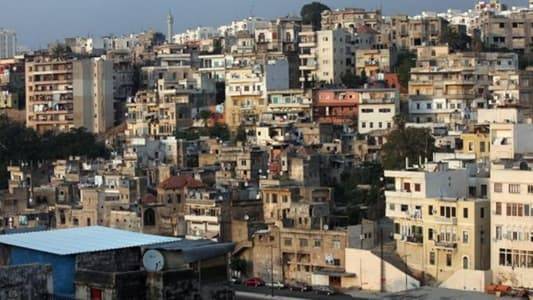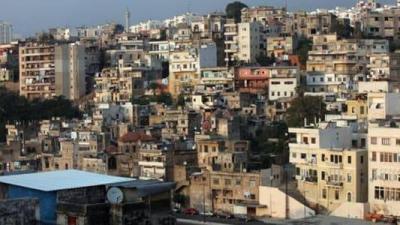The anxiety of the residents of Tripoli and the north has not subsided after experiencing the aftershocks of the devastating earthquake that struck Turkey and Syria early last Monday. The people of Tripoli do not hide their fears regarding the repercussions on their homes, which are threatened with collapse, while many are preoccupied with checking the conditions of Lebanese citizens residing in Turkey or Syria, following reports of casualties among them and of missing persons whose fates are still unknown.
Regarding the buildings, immediately after the announcement of forming a follow-up committee to inspect buildings at risk of collapse, following a meeting held at the Dar al-Iftaa in Tripoli at the invitation of the Grand Mufti of Tripoli and the North, Sheikh Muhammad Imam, many citizens hastened to contact committee members to inform them that their homes are cracked and threatened with imminent collapse, seeking assistance. Committee member and head of the finance committee at the Engineers Syndicate in Tripoli, Muhammad Sheikh al-Najjarin, confirmed the validity of the complaints, explaining to "Al-Akhbar" that they had inspected "more than 15 houses in Al-Qobbeh, Abi Samra, the port area, Miniyeh, and Bhanine, and it became clear to us that there are buildings that are cracked and genuinely at risk of collapse." However, he pointed out that the committee's work "is merely advisory; we are not an executive committee," after citizens mistakenly believed that the committee would repair the houses.
Al-Najjarin did not deny what is being circulated about the existence of 500 cracked houses threatened with collapse in Tripoli and its surroundings, "but they are not buildings susceptible to collapse immediately, unless the situation worsens in the future." He noted the increase in cracking of some buildings after the tremor, adding, "If a second tremor occurs with the strength of the previous one, God forbid, a major disaster will take place."
Another concern that overshadowed the residents is the need to ensure the safety of Lebanese citizens currently in Syria and Turkey. While reports indicated the deaths of 7 Lebanese individuals in Syria, similar reports confirmed the death of Sheikh Abdul Rahman Arnaout, a Tripoli native, due to the earthquake in Turkey, a fact mourned by his family on social media platforms. Additionally, Susan Assaad was found dead under the rubble in the city of Kahramanmaraş, while her son Sarhan Shama, who was with her, survived, as did her husband Muhammad Shama, who contacted his family to inform them of his survival.
As for the missing persons, reports estimate that there are around 30 missing individuals at a minimum, with their families contacting the Lebanese embassy in Turkey requesting assistance in obtaining information about their fates. Among those missing is Ibrahim Khalaf, a resident of the Al-Qobbeh area of Tripoli, who has been living in Turkey for years. His brother Mustafa reported that they have no information about him so far, "but the house where he was living in a three-story building has completely collapsed, and his fate is unknown, along with that of his wife and three children, as search and rescue teams have not yet reached the area."
The same situation is faced by the relatives of Fatima Zakaria from Al-Qobbeh, as her brother explained that there is conflicting information regarding her and other missing persons, "and we are in contact with her father, who is in Istanbul and is anxiously awaiting information about his daughter's fate." The same applies to Nadia Al-Shayah, a daughter from Baqaasfarin in the Dinniyeh region, who is married to a Turk named Ali Diaboglu; her relatives informed "Al-Akhbar" that there is no information about her whereabouts.




